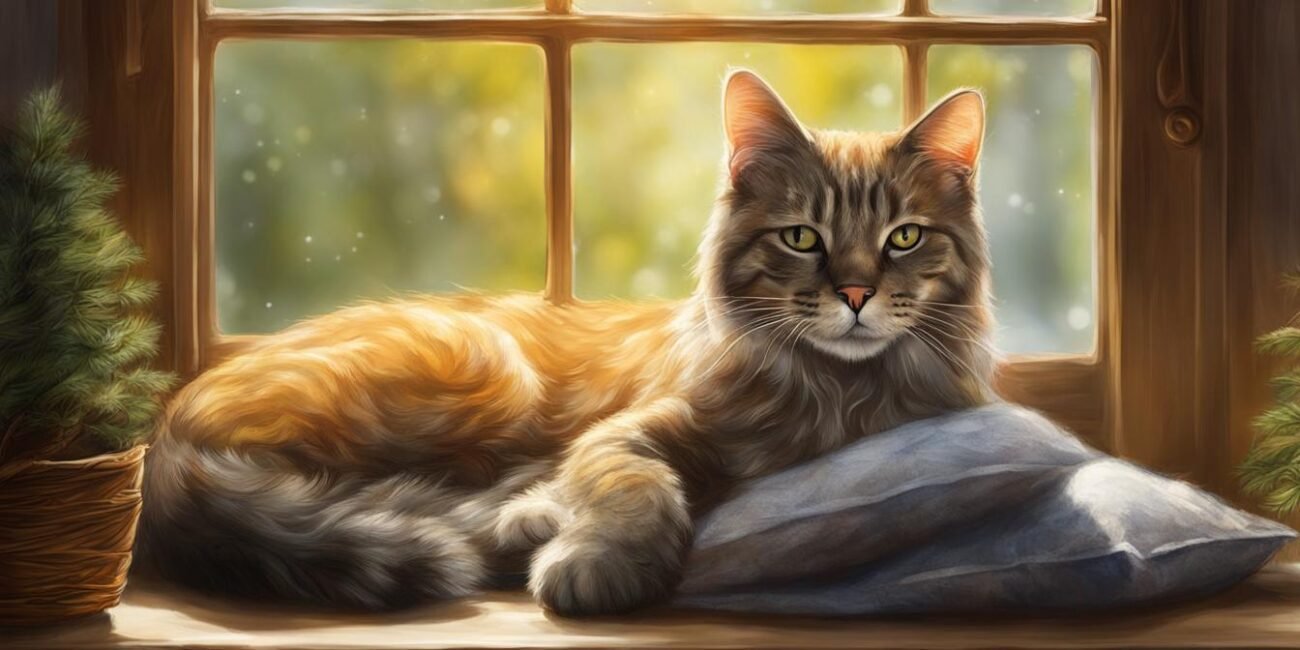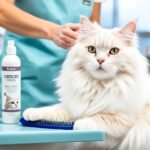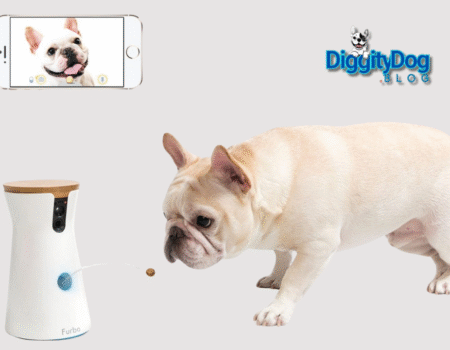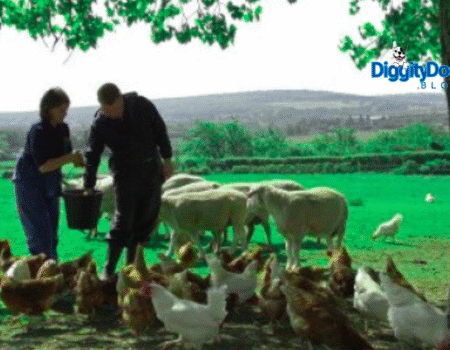Cats are beloved companions, and as they age, it becomes essential to provide them with the proper care and attention they need. Just like humans, cats experience changes in their health and behavior as they grow older. Understanding the unique needs of senior cats and taking steps to address them can greatly enhance their quality of life.
As cats are living longer thanks to improved nutrition and veterinary care, they are now considered seniors at around 12 to 14 years of age. However, old age is not a disease, and not all older cats experience significant changes. Nevertheless, it is crucial to recognize and address any health or behavior changes in older cats to ensure their well-being.
Key Takeaways:
- Senior cats have unique health and care needs.
- Regular veterinary care is crucial for maintaining the health of senior cats.
- Monitoring and detecting early signs of health conditions is important for senior cat wellness.
- Modifying the home environment can make it senior cat-friendly.
- Proper nutrition, exercise, grooming, and emotional support are vital for aging cats.
Signs of Aging in Cats
As cats age, it is natural for them to undergo certain changes in their behavior and physical health. Recognizing these signs can help you provide appropriate geriatric cat care and ensure your aging feline friend stays healthy and happy.
Changes in Activity and Playfulness
One common sign of cat aging is a decrease in activity and playfulness. While younger cats may spend hours chasing toys and exploring their surroundings, older cats tend to become less active. They may prefer to sleep more and engage in gentle play, such as batting at feather toys or rolling a ball.
Increased Sleep Time
Aging cats often spend more time sleeping than their younger counterparts. It is not uncommon for a senior cat to sleep up to 16 hours or more each day. However, excessive or sudden changes in sleep patterns could indicate underlying health issues, and it is important to monitor your cat’s sleep habits to ensure they are within a normal range.
Weight Changes
Weight changes are another sign of cat aging. Some older cats may experience weight gain due to decreased activity levels and a slower metabolism, while others may lose weight due to dental problems, reduced appetite, or underlying medical conditions. Regular weighing and monitoring of your cat’s body condition can help detect any significant changes.
Changes in Behavior
Older cats can exhibit changes in behavior that may be attributed to aging. This can include increased vocalization, confusion, disorientation, or aggression. These changes may sometimes be indicative of age-related cognitive decline or underlying medical conditions. If you notice any significant changes in your cat’s behavior, it is important to seek veterinary advice for proper evaluation and management.
Urinary and Litter Box Issues
Senior cats are also more prone to urinary and litter box issues. They may experience difficulties or discomfort while urinating, exhibit changes in litter box habits, or even have accidents outside the litter box. These issues could be signs of urinary tract infections, bladder stones, arthritis, or other conditions that require prompt veterinary attention.
Remember, while these signs are common in aging cats, it is important to consult with your veterinarian if you notice any changes in your cat’s behavior or physical condition. Regular veterinary check-ups and preventive care are crucial for maintaining the health and well-being of your aging feline companion.
Easy Access and Comfort for Older Cats
As cats age, they may experience difficulty reaching their favorite spots, such as litter boxes or resting places. Providing easy access to these areas is crucial to maintaining their independence and overall well-being. Here are some tips to ensure easy access and comfort for your senior cat:
Create Multiple Resting Spots
Older cats tend to sleep more and may require warm and comfortable resting places. Consider providing cozy beds or blankets in different areas of your home, away from any drafts or disturbances. This gives your senior cat the opportunity to choose the spot that feels most comfortable to them.
Place Litter Boxes on Every Floor
Arthritis and joint problems are common in older cats, which can make climbing stairs or navigating long distances difficult. To ensure easy access to the litter box, place one on every floor of your home. This eliminates the need for your senior cat to travel far when nature calls.
Create Ramps or Steps
If your senior cat has trouble jumping onto higher surfaces, consider creating ramps or steps to assist them. This can be particularly helpful for access to their favorite resting spots, such as sofas or beds. You can easily purchase or build ramps and steps that are specifically designed for cats.
“Older cats deserve comfort and easy access to their favorite spots. By making simple adjustments to your home, you can enhance their quality of life and ensure their well-being.” – Dr. Sarah Johnson, Veterinarian
Grooming and Hygiene for Older Cats
As cats age, their grooming habits may decline, making grooming and hygiene care even more essential for their well-being. Regular grooming can help remove loose hairs, stimulate circulation, and prevent matting. Additionally, older cats may experience changes in their skin and require extra care during grooming. Here are some tips to ensure proper grooming and hygiene for senior cats:
1. Gentle Brushing or Combing: Use a soft-bristled brush or a comb to gently remove loose hairs from your cat’s coat. This helps prevent matting and keeps their fur clean and healthy. Regular brushing also stimulates blood circulation, promoting skin health.
2. Sensitive Skin Care: Older cats may have more sensitive skin, so it’s important to be gentle during grooming sessions. Avoid excessive pulling or tugging, as it can cause discomfort or pain. If you notice any skin irritations or abnormalities, consult with your veterinarian for proper care.
3. Eye and Ear Cleaning: Keep your cat’s eyes and ears clean to prevent infections or other issues. Use a damp cloth or gentle pet wipes to wipe away any debris around their eyes or in the outer ear area. Avoid using cotton swabs or inserting anything into their ears, as it can cause injury.
4. Nail Trimming: Trim your cat’s nails regularly to prevent them from becoming too long or sharp. Use cat-specific nail clippers or a grinder designed for pets. Be cautious not to cut into the quick, which can cause bleeding and pain. If you’re unsure about nail trimming, consult your veterinarian or a professional groomer.
5. Dental Care: Dental health is crucial for older cats. Brush their teeth regularly using a toothbrush and toothpaste specifically formulated for cats. If your cat resists brushing, there are dental treats or mouth rinses available that can help maintain their oral hygiene. Schedule regular dental check-ups with your veterinarian as well.
6. Nightlights for Better Vision: Senior cats may experience vision problems, especially in low-light conditions. Providing nightlights in their favorite areas can help them navigate at night and ensure their safety.
“Proper grooming and hygiene care are essential for maintaining the health and comfort of senior cats. Regular grooming sessions help prevent matting and keep their skin and coat in good condition. By being gentle and attentive to their needs, you can ensure that your older cat stays clean, comfortable, and happy.”
Emotional Support for Older Cats
As cats age, they may require more emotional support to navigate the changes that come with aging. Just like humans, older cats can experience a range of emotions and may become more dependent on relationships.
One way to provide emotional support is by maintaining a stable and predictable routine. Older cats thrive on structure and familiarity, so establishing consistent feeding, playtime, and rest periods can help reassure them.
Additionally, giving older cats extra love and attention is crucial during their golden years. Spend quality time with your senior cat, engaging in activities they enjoy. This could include gentle play sessions, cuddling, or simply sitting quietly in their presence.
“Our senior cat, Whiskers, loves it when we spend time with her during the evenings. We play with her favorite toys and give her lots of snuggles. It makes a big difference in her overall happiness and well-being.” – Sarah, cat owner
Remember, older cats may have unique needs for emotional support, so it’s important to observe their behavior and respond accordingly. If you notice any signs of stress or anxiety, consult with your veterinarian for additional guidance.
Creating a Senior Cat-Friendly Environment
In addition to emotional support, creating a senior cat-friendly home environment is essential for their well-being. Consider the following tips:
- Provide easy access to comfortable resting spots, such as cozy beds or warm blankets.
- Place litter boxes on every floor to ensure older cats can easily reach them.
- Minimize stressful stimuli, such as loud noises or sudden changes, to create a calm and peaceful atmosphere.
By taking these steps, you can help ensure that your senior cat feels loved, secure, and supported throughout their golden years.
Regular Veterinary Care for Senior Cats
Regular veterinary exams are crucial for maintaining the health and well-being of senior cats. As cats age, their bodies may undergo changes that require specialized care. Regular checkups allow veterinarians to detect and address health issues early, improving the quality of life for older cats.
For geriatric cats, it is recommended to schedule checkups every six months. These comprehensive examinations go beyond routine vaccinations and include thorough physical examinations, blood work, and X-rays. These diagnostic tests can provide valuable insights into your cat’s overall health and help identify any potential issues.
During these checkups, your veterinarian will assess your cat’s weight, eyesight, dental health, heart and lung function, mobility, and more. They will also ask about any changes in behavior or appetite you may have noticed. The information gathered during these visits allows veterinarians to tailor a care plan that meets your senior cat’s specific needs.
Early detection is key when it comes to senior cat health. Many age-related conditions, such as kidney disease, hyperthyroidism, diabetes, and arthritis, can be managed more effectively when caught in their early stages. By staying proactive and scheduling regular veterinary visits, you can ensure that your senior cat receives the necessary care and support to thrive in their golden years.
Remember, regular veterinary care is not only essential for diagnosing health issues but also for preventive care. Vaccinations, parasite prevention, dental cleanings, and nutrition guidance can all contribute to maintaining your senior cat’s health and longevity.
Benefits of Regular Veterinary Care for Senior Cats:
- Early detection and treatment of age-related health conditions
- Customized care plans tailored to your cat’s specific needs
- Improved quality of life and overall well-being
- Monitoring weight, dental health, and mobility
- Preventive care to minimize the risk of future health problems
| Age | Recommended Vet Visits | Additional Considerations |
|---|---|---|
| 7-10 years | Yearly exams | Begin yearly senior blood work |
| 11-14 years | Yearly exams + geriatric blood work | Increase monitoring for common age-related conditions |
| 15+ years | Bi-annual exams + comprehensive blood work | Close monitoring for age-related changes and diseases |
Regular veterinary care is the cornerstone of senior cat health. By staying engaged with your vet, you’ll be providing your cat with the best chance for a long and healthy life.
Nutrition and Hydration for Senior Cats
As cats age, their nutritional needs may change, making it essential to provide them with an appropriate diet to support their health and well-being. Senior cats require specific nutrients to support their aging bodies and maintain optimal health. It is crucial to choose a diet that caters to their needs, ensuring they receive the necessary nutrition while managing their calorie intake.
Cats are obligate carnivores, meaning they require a diet rich in animal-based protein. Protein is important for muscle maintenance, organ function, and overall health. Senior cat food formulas are designed to provide higher levels of easily digestible protein, ensuring that older cats receive the necessary amino acids for optimal health.
Additionally, older cats may benefit from diets that contain ingredients promoting joint health, such as glucosamine and chondroitin. These compounds support joint function and mobility, which can be beneficial for senior cats experiencing age-related joint issues.
When choosing a diet for your senior cat, it is also important to consider their hydration needs. Older cats may have reduced kidney function, making them prone to dehydration. Providing easy access to clean water is crucial to prevent urinary tract issues and maintain proper hydration. In some cases, senior cats may benefit from a mixed diet of canned and dry food. Canned food contributes to their water intake, as it contains higher moisture content than dry kibble.
Furthermore, senior cats may also have specific dietary requirements due to underlying health conditions. For instance, cats with renal issues may benefit from a specialized renal diet that supports kidney function.
Consulting with your veterinarian is crucial in determining the most suitable diet for your senior cat. Your veterinarian can assess your cat’s overall health and make appropriate dietary recommendations based on their specific needs. Additionally, they can monitor your cat’s weight to ensure they maintain a healthy body condition throughout their senior years.
| Key Nutritional Considerations for Senior Cats | Benefits |
|---|---|
| High-quality, easily digestible protein | Promotes muscle maintenance and overall health |
| Ingredients supporting joint health (glucosamine, chondroitin) | Enhances joint function and mobility |
| Increased moisture content | Supports hydration and urinary tract health |
| Dietary modifications for specific health conditions (e.g., renal diet) | Addresses specific health concerns and supports overall well-being |
Remember, providing your senior cat with a balanced and nutritionally appropriate diet is vital in maintaining their health and ensuring their golden years are comfortable and enjoyable.
Exercise and Play for Older Cats
While senior cats may naturally become less active, it is still important to prioritize gentle exercise and play to maintain their overall health and well-being. Engaging in appropriate activities can help keep them mobile, mentally stimulated, and promote a sense of senior cat wellness. Here are some ways to encourage exercise and play for your older feline companion:
1. Interactive Toys
Introducing interactive toys can provide mental stimulation and encourage physical activity in senior cats. Toys that require swatting, chasing, or problem-solving can keep them engaged and promote exercise. Look for toys that are designed specifically for older cats, taking into consideration their capabilities and limitations.
2. Short Walks Indoors
If your senior cat is capable and willing, going for short walks indoors can be a great way to incorporate gentle exercise into their routine. Use a leash or harness specially designed for cats to ensure their safety during the walk. You can also set up a small obstacle course or play hide-and-seek to encourage movement and mental stimulation.
3. Gentle Activities
Suitable gentle activities for older cats include low-impact games like batting around a soft ball or feather teaser. These activities allow them to engage their natural instincts and maintain agility without putting too much strain on their joints. Tailor the activities to your cat’s comfort level and always monitor their responses to avoid overexertion.
“Exercise and play are vital for senior cats. By keeping them physically active and mentally stimulated, you can enhance their overall wellness and quality of life.” – Dr. Emily Thompson, Veterinarian
Remember to consult with your veterinarian to determine the appropriate type and duration of exercise for your senior cat. They can provide individualized recommendations based on your cat’s health, age, and any underlying conditions.
Regular exercise and play sessions tailored to your senior cat’s abilities can help promote their well-being and prevent age-related issues. Make time for interactive play and gentle activities to keep them physically and mentally active. By incorporating exercise into their routine, you are contributing to their senior cat wellness and overall geriatric cat care.
Dental Care for Senior Cats
Dental disease is a common concern for senior cats and can have a significant impact on their overall health and well-being. As cats age, they may develop dental issues such as periodontal disease, tooth decay, and gingivitis. These conditions can cause pain, discomfort, and difficulties with eating, leading to weight loss and malnutrition.
To ensure optimal dental health for senior cats, regular dental care is essential. This includes both professional dental check-ups and cleanings performed by a veterinarian, as well as at-home dental care. Professional cleanings typically involve a thorough examination of the cat’s oral cavity, scaling to remove tartar and plaque, and polishing to smooth the tooth surfaces and reduce the risk of future plaque buildup.
At-home dental care plays a crucial role in maintaining oral health between professional cleanings. Cats can benefit from daily teeth brushing using specifically formulated toothpaste for cats. The process should be gradual and gentle, starting with introducing the cat to the taste and smell of the toothpaste and eventually progressing to brushing the teeth with a suitable toothbrush or finger brush. It is important to use products designed specifically for cats, as human toothpaste can be toxic to them.
Additionally, there are dental hygiene products available, such as dental treats, toys, and rinses, that can help reduce plaque and tartar buildup. These products can be used as complementary measures to assist in maintaining dental health, but they should not replace regular veterinary dental care.
To identify potential dental problems in senior cats, it is important to be vigilant for signs of dental disease. These include bad breath, drooling, decreased appetite or difficulty eating, pawing at the mouth, swollen or bleeding gums, and changes in behavior. If any of these symptoms are observed, it is crucial to consult a veterinarian promptly for a thorough dental examination and appropriate treatment.
Awareness of and attention to dental care for senior cats can greatly contribute to their overall health and quality of life. By implementing regular dental check-ups, professional cleanings, and at-home dental care, pet owners can help ensure that their beloved senior cats maintain healthy and pain-free mouths.
| Benefits of Dental Care for Senior Cats | Risks of Neglecting Dental Care for Senior Cats |
|---|---|
|
|
Regular dental care for senior cats is crucial in maintaining their oral health and overall well-being. By addressing dental issues promptly and implementing preventive measures, pet owners can ensure that their senior cats enjoy a comfortable and pain-free life. Remember to consult a veterinarian for professional guidance and support in providing appropriate dental care for your senior feline companion.
Monitoring and Early Detection
As cats grow older, they become more susceptible to certain health conditions that can impact their overall well-being. Conditions such as kidney disease, diabetes, and hyperthyroidism are common in senior cats. Regular monitoring and early detection of these conditions are crucial for ensuring the health and longevity of our feline companions.
Observing changes in behavior, appetite, and physical condition can provide valuable insights into a senior cat’s health. Any unusual or concerning symptoms should be promptly addressed by consulting a veterinarian. Through comprehensive veterinary exams and diagnostic tests, potential health issues can be identified and treated in their early stages, leading to better outcomes for senior cats.
To help cat owners keep track of their senior feline’s health, the following indicators should be monitored:
- Changes in eating and drinking habits
- Weight loss or gain
- Increase or decrease in urination
- Changes in litter box habits
- Unexplained coughing, sneezing, or difficulty breathing
- Decreased mobility or stiffness
By regularly observing and documenting any changes in these areas, cat owners can provide their veterinarians with vital information needed for accurate diagnosis and treatment.
As part of the monitoring process, it is essential to schedule regular veterinary check-ups for senior cats. These visits should occur at least twice a year, allowing veterinarians to conduct thorough examinations and perform necessary tests. Blood work, urinalysis, and other diagnostic procedures can help identify underlying health issues that may not be immediately apparent.
Early Detection is Key
“Regular monitoring and early detection of health conditions in senior cats can significantly improve their quality of life and prognosis. It’s important to pay close attention to any changes in your cat’s behavior and physical condition and seek veterinary care promptly. Early intervention can make a tremendous difference in managing and treating age-related health issues.”
By prioritizing regular monitoring and early detection, senior cat owners can proactively address potential health concerns and ensure their beloved companions receive the care they need at the right time. Taking these steps contributes to a longer, happier, and healthier life for senior cats.
| Health Condition | Signs and Symptoms | Diagnostic Tests |
|---|---|---|
| Kidney Disease |
|
|
| Diabetes |
|
|
| Hyperthyroidism |
|
|
Creating a Senior Cat-Friendly Home
Modifying the home environment to accommodate the needs of senior cats can greatly enhance their quality of life. As cats age, they may experience changes in mobility, vision, and overall comfort. By making a few simple adjustments, you can create a safe and welcoming space for your senior feline friend.
Comfortable Resting Spots
Providing comfortable resting spots is essential for senior cats, as they may spend more time sleeping and resting. Consider providing soft and supportive beds or blankets in areas where your cat likes to relax. Ensure that the resting spots are easily accessible, especially if your cat has difficulty jumping or climbing. Placing these spots away from noisy areas or high-traffic zones can also help create a peaceful environment.
Easy Access to Food, Water, and Litter Boxes
Senior cats may have decreased mobility or joint stiffness, making it challenging for them to reach food and water bowls or litter boxes. Place these essentials in easily accessible areas that don’t require your cat to climb or jump. Consider using elevated food and water dishes to reduce strain on the neck and spine. Additionally, having multiple litter boxes placed on each floor of your home ensures that your senior cat can easily find and use them.
Minimizing Stressors
Minimizing stress is crucial for the overall well-being of senior cats. Loud noises, sudden changes in routine, or the presence of unfamiliar animals or people can cause anxiety and distress. Designate a quiet and secure area where your senior cat can retreat to when they need a break from stimulation. Providing hiding places, such as covered beds or hiding boxes, can also help create a sense of security.
Visual and Auditory Support
Senior cats with vision impairments may benefit from additional visual and auditory support. Placing nightlights in areas your cat frequents, such as near litter boxes and food bowls, can help them navigate their environment more easily, especially in dimly lit areas. Soft background music or calming sounds can also create a soothing atmosphere for your senior cat.
Creating a senior cat-friendly home involves thoughtful consideration of your cat’s needs and limitations. By providing comfortable resting spots, easy access to essential resources, minimizing stressors, and offering visual and auditory support, you can ensure a safe and enriching environment for your beloved senior cat.
| Tips for Creating a Senior Cat-Friendly Home |
|---|
| Provide comfortable resting spots in quiet areas, away from noise and high-traffic zones. |
| Ensure easy access to food, water, and litter boxes by placing them in easily reachable locations. |
| Minimize stress by avoiding sudden changes and creating a secure area for your senior cat. |
| Place nightlights in dimly lit areas and provide soft background music for visual and auditory support. |
Conclusion
As cats age, it is crucial to prioritize their senior cat health and provide them with proper senior cat care. Regular veterinary check-ups are essential for detecting and addressing any age-related health issues early on. Additionally, ensuring a balanced diet that meets the nutritional needs of aging cats is crucial for maintaining their well-being.
Exercise and play should not be overlooked when it comes to senior cat care. Gentle activities and interactive toys can help keep older cats physically active and mentally stimulated. Creating a senior cat-friendly home environment, with comfortable resting spots and easy access to essential areas like food, water, and litter boxes, can greatly enhance their quality of life.
Lastly, grooming and emotional support are vital aspects of senior cat care. Regular grooming can help maintain their hygiene and promote blood circulation. Providing emotional support, stability, and extra love during their golden years can alleviate any anxiety or stress they might experience.
With proper care and attention, senior cats can continue to enjoy a high quality of life. Prioritizing their senior cat health and providing them with all the necessary senior cat care can ensure that they age gracefully and happily.
FAQ
How can I tell if my cat is getting old?
Some signs of aging in cats include decreased activity, increased sleep, weight changes, and changes in behavior. However, it’s important to note that these changes can also be signs of underlying health issues, so it’s best to consult a veterinarian if you notice any significant changes.
How can I make my home more accessible for my older cat?
To make your home more accessible for your older cat, consider providing ramps or steps to help them reach their favorite spots, such as litter boxes or resting places. Placing litter boxes on every floor of your home can also make it easier for them to access. Additionally, ensure warm and comfortable resting places for your older cat.
How should I groom my older cat?
Older cats may need more grooming assistance, especially if their self-grooming habits decline. Regular brushing or combing can help remove loose hairs and stimulate circulation. Be gentle when grooming older cats, as their skin may be more sensitive. Providing nightlights can also help cats with vision problems navigate at night.
Does my older cat need more emotional support?
Older cats may become more dependent on relationships and require increased attention and emotional support. Maintaining a stable and predictable routine can help reassure older cats. Giving them extra love and care during their golden years can greatly enhance their well-being.
How often should I take my senior cat to the vet?
Regular veterinary exams are essential for maintaining the health of senior cats. Six-month checkups for geriatric cats are recommended, along with yearly exams that include blood work and X-rays. Early detection and treatment of health issues can greatly improve their quality of life.
What should I feed my senior cat?
Senior cats may have specific nutritional needs. It’s important to choose a diet that provides appropriate nutrition and the right amount of calories for an aging cat. Mixing canned and dry food can ensure they receive enough water, as kidney function often deteriorates in older cats. Easy access to clean water is also crucial.
Does my older cat still need exercise?
While older cats may be less active, gentle exercise and play are still important for their health. Encouraging them to play with interactive toys, going for short walks indoors, and engaging in gentle activities can help keep them mobile and mentally stimulated. Tailor the exercise to their capabilities and limitations.
How do I take care of my senior cat’s dental health?
Dental disease is common in older cats and can cause pain and difficulties with eating. Regular dental check-ups and professional cleanings, along with at-home dental care, are essential for maintaining oral health. Watch for signs of dental disease, such as bad breath or decreased appetite, and consult a veterinarian if needed.
What health conditions are older cats more prone to?
Older cats may be more prone to certain health conditions, such as kidney disease, diabetes, or hyperthyroidism. Regular monitoring and early detection of these conditions through veterinary exams and diagnostic tests can greatly improve outcomes. Watch for any changes in behavior, appetite, or physical condition and consult a veterinarian if any concerns arise.
How can I create a senior cat-friendly home?
Modifying the home environment to accommodate the needs of senior cats can greatly enhance their quality of life. Provide comfortable resting spots, easy access to food, water, and litter boxes, and minimize stressors such as loud noises or sudden changes. A senior cat-friendly home can help older cats navigate their surroundings more easily.
What can I do to prioritize my senior cat’s health?
As cats live longer, it’s important to prioritize their health and well-being in their golden years. Schedule regular veterinary care, choose a proper diet, provide exercise and mental stimulation, maintain grooming and dental care, and create a senior cat-friendly home environment. With proper care, older cats can continue to enjoy a high quality of life.
Source Links
- https://www.vet.cornell.edu/departments-centers-and-institutes/cornell-feline-health-center/health-information/feline-health-topics/loving-care-older-cats
- https://www.vet.cornell.edu/departments-centers-and-institutes/cornell-feline-health-center/health-information/feline-health-topics/special-needs-senior-cat
- https://icatcare.org/advice/elderly-cats-special-considerations/










No Comment! Be the first one.